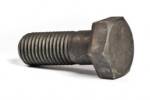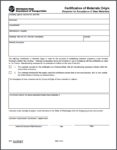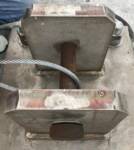Newest FAQs
Every bolt grade has specific requirements including chemical makeup and strength properties. Virtually every grade of fastener also has diametrical limitations on both the small end and large end of sizes. For many grades the smallest diameter is ¼”, but some start at ½” (like ASTM F3125 and F1554). On the large end most bolts grades end... Read more
The simple answer is none. The two specifications were written in tandem to be identical. The only difference between the two bolts is intended application. A193 bolts are intended for high temperature and high pressure applications, while A320 bolts are for cold temperature applications. Both bolt grades are made from type 304 stainless steel, have the same mechanical... Read more
A194 2H nuts are a common high strength nut used with many different bolt grades, including A193 Grade B7, A325, A490, F1554 Grade 105 and others. Occasionally Portland Bolt will be asked to provide A194 Grade 2HM nuts, most often with A193 Grade B7M. In many grades an ‘M’ refers to metric, which is not... Read more
According to ASME, a global standards organization which provides manufacturers with guidelines and tolerances for producing parts, there are no listed dimensions to manufacture heavy square head bolts. However, ASME does provide dimensions for heavy square nuts. ASME B18.2.1 This standard covers the dimensional requirements for nine product types of inch series bolts and screws... Read more
The ASTM F1554 specification for anchor bolts ranges from ½ – 4”Ø in Grade 36 and 55 and ½” – 3”Ø in Grade 105. Other material specifications are available for diameters larger than what is covered by F1554, but in some cases they are not technically fastener specifications. Grade Identification Size Inches 36 1⁄2 – 4 55... Read more
When selecting an ASTM grade of fastener for a particular application, the chemical and mechanical requirements are normally considered first, but there are some fastener specifications that require a certain head style as well. Below is a chart showing some common ASTM grades and whether or not they have requirements for the pattern of forged... Read more

Portland Bolt accepts returns on stock items that we inventory, with some exceptions and limitations. We are unable to accept returns on custom items that were manufactured per order. Exceptions for Returns on Portland Bolt Stock Items Portland Bolt is willing to accept returns on items that we inventory as long as the parts are... Read more
The bars we use to manufacture your bolts are rolled by the steel mill with standard tolerances for diameter, out of roundness, and straightness. ASTM A6 covers many of these tolerances, as well as the chemical and dimensional tolerances for other shapes and plates. Because round bar is what we primarily use, we will stick... Read more
Yes, Portland Bolt will provide CMO paperwork for DOT projects in the US. The purpose of a CMO is to document the origin of materials used on a construction project. A CMO is required under the Buy America Act and applies to all federally funded highway construction projects. A CMO is used to certify that all... Read more

There are two possible causes for this. First is that oxidation can occur due to contamination from equipment that is used to make other carbon steel products. This can leave some iron deposits that will rust over time. This is only aesthetic, but can be unsightly. The second possibility is that the bolts were not... Read more

